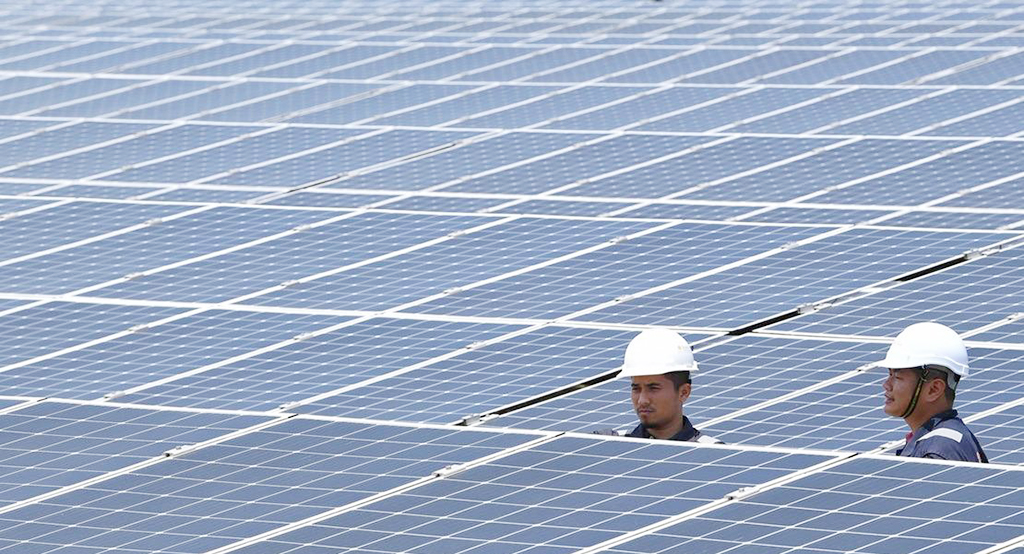Malaysia should learn from others experiences in developing CCUS biz

Globally, significant expansion in CCUS is seen as vital to achieving net-zero emissions
CARBON capture projects in South-East Asia are expected to pique the government’s and investors’ interest due to the forecast of increasing energy demand in the region by 35%.
Hence, it is crucial for Malaysia to learn from the experience of other nations to create its own carbon capture, usage and storage (CCUS) business.
At the recently concluded Energy Asia 2023 conference, US Department of Energy’s assistant secretary for fossil energy and carbon management Brad Crabtree expressed his support for Malaysia’s efforts to develop a regulatory framework to create a strong carbon capture industry. He noted that the government is increasing cross-border discussions about crediting carbon capture and storage across the region.
However, Crabtree emphasised that the crucial takeaway is to ensure that a regulatory framework is in place, which must begin immediately.
In comparison, he said the US government is expecting a 10-fold increase in projects, owing primarily to tax credit.
On the other hand, Japan Organisation for Metals and Energy Security (JOGMEC) director of the Subsurface Division of Hydrogen and CCS Takashi Akai said two key policy features to enable large-scale deployments and growth of carbon capture and storage (CCS) are defining CCS as a means of greenhouse gas (GHG) reduction in energy policy and defining and developing CCS regulations.
The Japanese government has defined CCS as a means of GHG reduction in its strategic energy plan in 2021. Recently, it established a long-term roadmap for CCS and is currently preparing CCS legislation.
Commenting on the technical commercial partnering opportunities that could help connect the emitters with the storage providers in the Asia-Pacific region (APAC), Halliburton senior VP for Asia Pacific Martin White said the bigger challenge is bringing the disparate supply chain together and historically having to work together over the years.
“We have had various meetings with industry players only to discover that they knew nothing about CCS. We have also spoken with the extreme players in the US, who discovered that they did not understand the subsurface,” he said at the conference.
Halliburton is a global provider of products and services to the energy industry.
White’s statement was concurred by Storegga (UK-based decarbonisation developer) executive VP Jon Story who said the challenges in Asia are cross-border issues, emphasising that collaboration in Asia focuses on the awareness of risk.
In terms of the financial support for both short- and long-term for those who want to store CO2 in Asia, Takashi said JOGMEC as a department is in line with the policy agreed on by the Asia Zero Emissions Community (AZEC).
This encompasses advancing cooperation towards carbon neutrality/net-zero emissions while ensuring energy security, promoting energy transition while achieving economic growth and recognising there are various and practical pathways toward carbon neutrality/net-zero emissions depending on the circumstances of each country.
Globally, significant expansion in CCUS is seen as vital to achieving net-zero emissions.
Policy incentives, paired with the closeness of emitters and sequestration locations, are pushing the development of low carbon hubs and carbon capture technology in the North America and Europe markets.
Concurrently, the Asia Pacific region has abundant CO2 storage resources, including depleted oil and gas (O&G) fields, but they are concentrated in a few nations and places, whereas CO2 emission sources are distributed across several countries and regions, frequently far from storage sites.
Eyeing for opportunities in the sector, Malaysia is seen to be able to benefit from countries in the Asia Pacific that are already using CCS-specific laws namely Australia, Canada, Denmark, the UK and the US.
Furthermore, the Kasawari Carbon Capture and Sequestration (CCS) development in Sarawak which is scheduled to start operations at the end of 2025 is expected to be one of the largest offshore CCS projects in the world, putting Malaysia on the right track.
